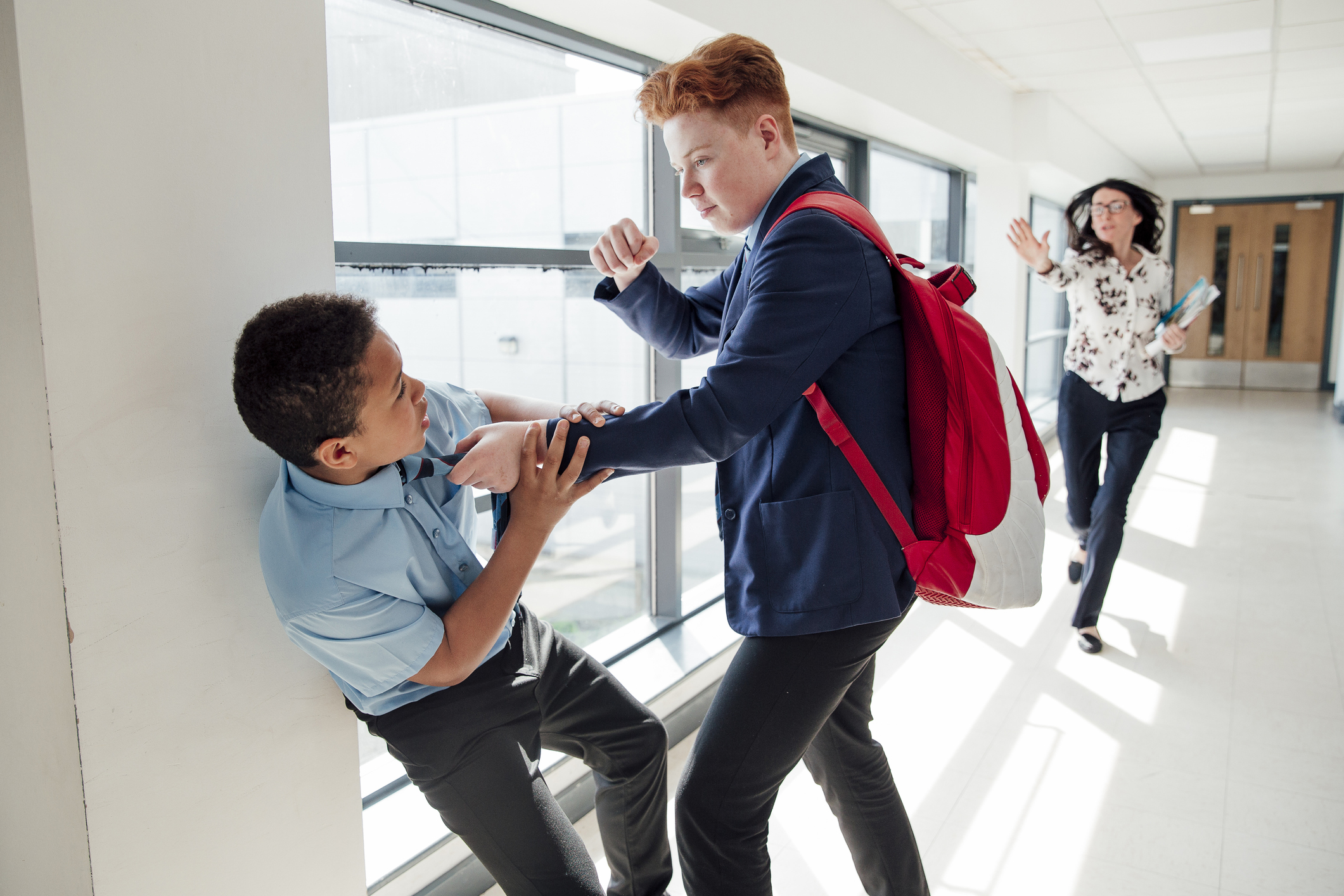Is Bullying Legal? What About Cyberbullying?
If we’ve learned anything from Regina George or Draco Malfoy, it’s that no one likes a bully. It’s commonly understood that bullying is bad. But behaviors that define bullying are constantly changing, which makes it difficult to know for certain when bullying occurs.
So what exactly is considered bullying? And is it against the law, or is it just something you get in trouble for at school? What about cyberbullying or other activities that take place off-campus?
Here’s what you should know.
What Is Bullying?
Bullying includes verbal, physical, or mental acts done by a student to harass, intimidate, or cause harm to another student. Bullies usually rely on an imbalance of power to get their way. Anything from name-calling to physical violence can fit the definition of bullying. States have different “anti-bullying laws,” but almost all have enacted laws that require individual schools and districts to have policies and procedures in place for the prevention, investigation, and response to allegations of bullying at school.
Federal equal protection laws can apply if bullying is based on race, ethnicity, national origin, sex, disability, or religion. State and local laws may also cover sexual orientation or gender expression. Schools, districts, and school administrators that fail to equally protect students risk violating the 14th Amendment and Title IX of the Civil Rights Act.
To determine whether bullying occurs, schools generally must prove that a student:
- Harmed or intimated another student
- Engaged in the acts of bullying at school or at a school-sponsored event
- Disrupted or interfered with the student’s education
What About Cyberbullying?
Cyberbullying is when someone uses electronic devices, like phones and computers, to intentionally harm, harass, intimidate, or embarrass another student. Cyberbullying is now one of the most common forms of bullying, most likely because of the rise of social media. Schools do not have to prove that the acts took place at school, but they must establish that the cyberbullying disrupted school or interfered with the educational process. So even if you send a text message from home to another student, you could violate cyberbullying policies.
Learn more about bullying and cyberbullying in a comic from FindLaw below:
When Is Bullying a Crime?
If bullying doesn’t involve illegal acts, it’s most likely a violation of a school’s student code of conduct. Punishment can include suspension and, in severe cases, expulsion.
Bullying may be a crime if it involves acts that are considered criminal offenses in your state. For example, bullying that includes harassment, threats, physical bullying, theft, or hazing may lead to misdemeanor criminal charges. If certain “aggravating factors” exist, bullying may even be a felony, meaning the punishment for a conviction could include prison time. Examples of aggravating factors include:
- The aggressor’s lack of remorse about bullying
- The amount of harm caused to the victim of bullying
- The motivation for the bullying
Some states treat cyberbullying behavior as violations of criminal harassment or stalking laws. As more and more bullying happens through social media and electronic devices, states are responding by passing laws specifically aimed at cyberbullying. Students who violate these new laws may face disciplinary action through both school AND criminal prosecution. So while social exclusion and some mean behavior may not count as bullying, more overt acts could.
Minors whose bullying consists of activities that would violate criminal laws are most likely committing a delinquent act and will be adjudicated through juvenile court.
How Can I Stop Bullying Behavior?
School officials and lawmakers around the country continue to work to better identify and address bullying. But it’s a challenge, and bullying prevention will remain a long-term struggle.
It’s unlikely there will ever be a world without bullies. So remember, it’s cool to be kind and, yes, you can sit with us. You can also report bullying incidents to your school if you witness it. You can also get help if you are the target of bullying.
Related Resources:
You Don’t Have To Solve This on Your Own – Get a Lawyer’s Help
Meeting with a lawyer can help you understand your options and how to best protect your rights. Visit our attorney directory to find a lawyer near you who can help.







